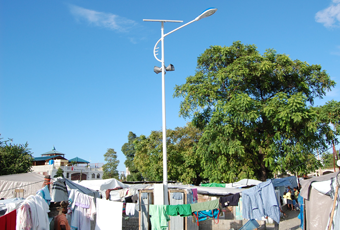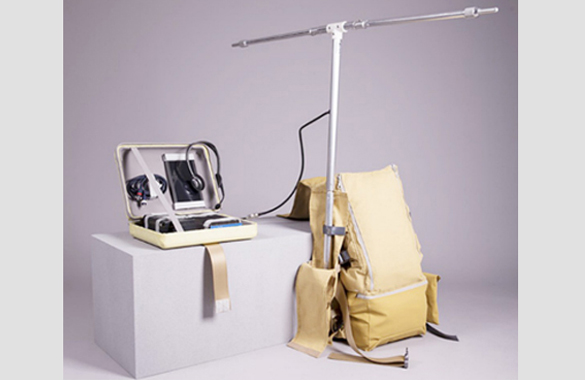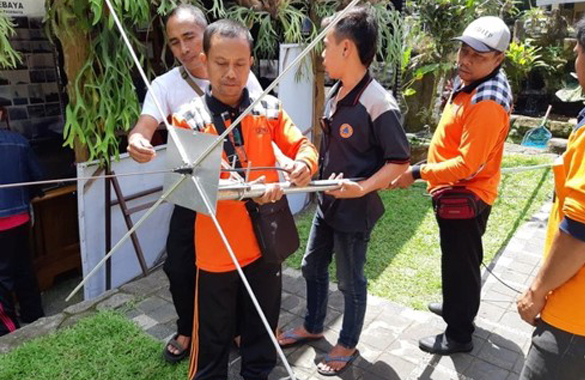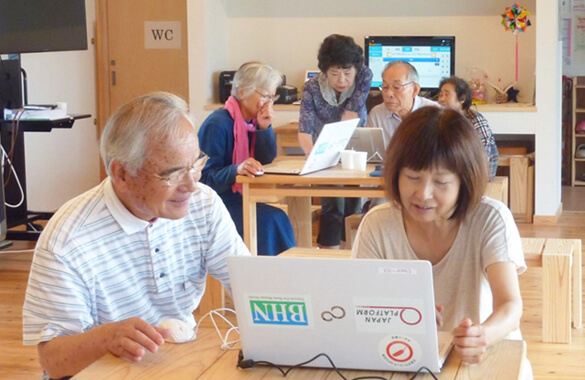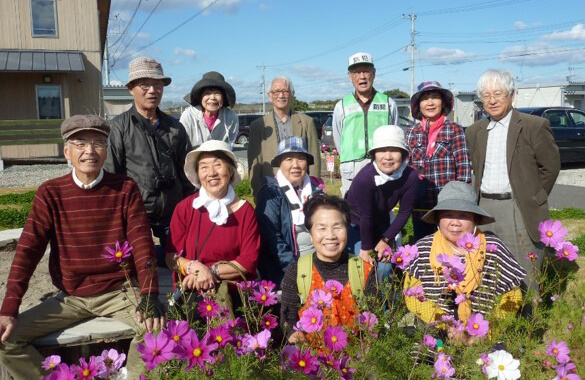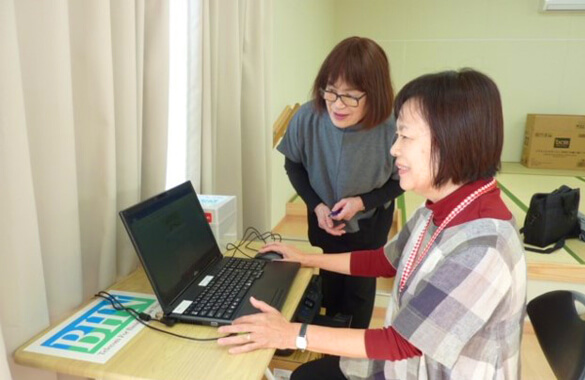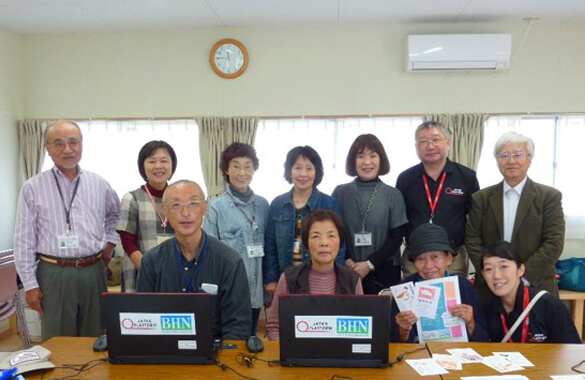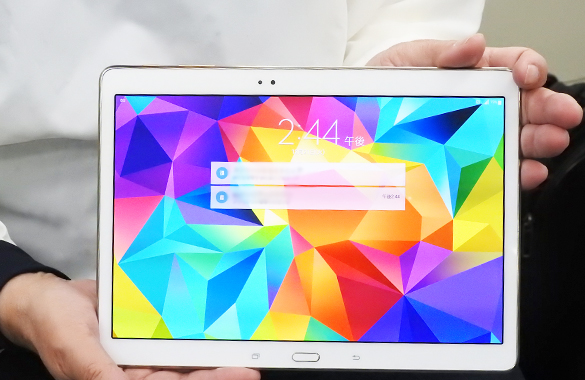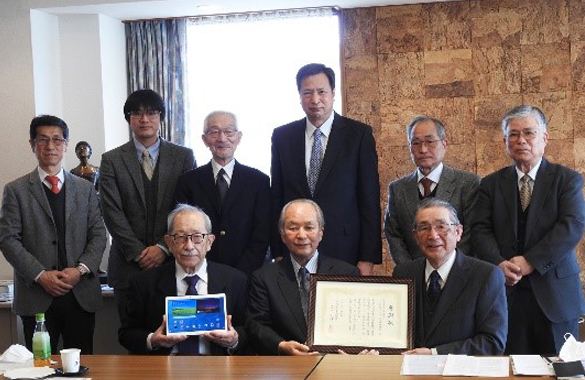
Social Development
“Backpack Radio” project
For Indonesians suffering from volcanic eruptions every year, a portable radio station called “Backpack Radio” was developed. (It consists of an FM transmitter with antenna, battery and solar panel. The radio station starts in 10 minutes and can broadcast news and music using a dedicated smartphone app.)
Eight sets of equipment were provided and used effectively during the recovery of the 2006 Yogyakarta earthquake and 2017 - 2019 Mt. Bali Agung eruption.
The goal is to provide “backpack radio” to community radio stations in the mountain area from January 31 to December 25, 2017.
A workshop for Merapi and other broadcasting staff were held in Indonesia and to raise the funds to procure the equipment, a crowdfunding campaign were held. We received donations that far exceeded our funding goals.
The concept of “backpack radio” was highly appreciated by members of the Community Radio Broadcasting Association (AMARC) , and the seminar held in Java, Indonesia in March 2018 was a big success.
At the AMARC Asia - Pacific Conference held in November 2018, a presentation titled “Backpack Radio” was given to a local broadcaster.
Kumamoto Earthquake Relief and Support Project
BHN conducted a survey of needs for people affected by the disaster, opened BHN Kumamoto office, and provided the following two support projects. (1) BHN opened BHN PC corners in the temporary community space of 6 public shelter - gymnasiums in Mashiki, Kashima and Mifune town, provided ICT consulting services to victims. (2) After that, BHN moved and opened BHN PC corners at the 50 meeting rooms of temporary housing estates built in Kumamoto city, Mashiki, Kashima, Mifune, Kousa town, Minamiaso and Nishihara village, and supported their community development activities, such as various kinds of PC training courses, ICT health care activities and periodical traveling technical consultations.
Since fiscal year 2019, the number of people staying in temporary housing estates has clearly been decreasing. The local governments announced the temporary housing estates integration plan that the temporary housing estates will be divided into two types (to be terminated or to be continued) . BHN would continue support activities for the remaining temporary housing estates. BHN removes BHN PC corners which have accomplished their purposes from the temporary housing estates, reopens BHN PC corners at the meeting rooms of the Disaster Restoration Public Housing estates, according to strong requests from the local government, etc., for a limited period, and would support their community development activities.
Western Japan Heavy Rain Relief and Support Project
BHN opens BHN PC corners at the meeting rooms of temporary housing estates built in Kure city and Saka town (BHN Hiroshima office) and in Mihara city (BHN Fukuyama office) , and supports their community development activities, such as periodical patrol for equipment inspection and small PC training courses.
Based on our experiences in the Great East Japan Earthquake, the Kumamoto Earthquake and other disasters, BHN takes an initiative to provide assistances that emphasize ICT practical use, such as placing many local ICT specialists for PC training courses and engaging in the work of sending, receiving and sharing information, as much as possible in partnership with the disaster victims.
Project to support novel coronavirus response using reuse tablet devices
Even though the tablets are no longer depreciated, they are still powerful enough to be used for telework and telemedicine education.
With the cooperation of the Ministry of Internal Affairs and Communications (MIC) and the University of Tohto, BHN has decided to reuse these tablets and promote activities to deliver them to medical sites in Japan, disaster areas, and developing countries in Southeast Asia and Africa. We hope that by using these tablets, we can be of help in supporting the response to the new coronavirus in Japan and abroad.
Supports you can do
BHN aims to improve the living conditions and solve social issues by utilizing information and communication technology (ICT) to protect the safety and security of people in developing countries and disaster-stricken areas in Japan and overseas. For this reason, we need the kind support and cooperation of many people. BHN offers a wide range of people, of all ages and from all walks of life, the opportunity to contribute their enthusiasm, their strengths, and their accumulated experience in a variety of ways. BHN invites you to participate in BHN activities in a way that suits you.
